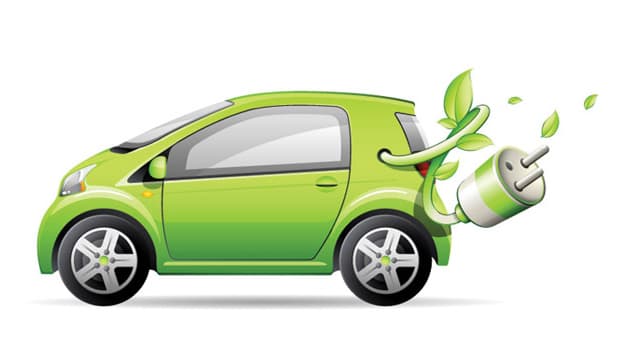Changing Job Landscape with the arrival of EVs

The intention to move from fossil fuel driven vehicles to electric vehicles (EVs) is being welcomed wholeheartedly in India by the Government. In this dismal global environmental scenario with pollution rippling the overall health index of the country, such future energy efficient products and services are being portrayed as the need of the hour. And the good news is that rather than being a late follower, the government is trying to position Indian Industry at the forefront of clean mobility.
In fact, NITI Aayog is recommending to lower taxes and interest rates for loans on electric vehicles. There are other plans in pipeline to cap sales of conventional cars, which signal a dramatic shift in one of the world’s fastest-growing auto markets. “India can become the first country of its size which will run 100 per cent of electric vehicles. We are trying to make this programme self-financed” was quoted by the Indian Government’s representative in a recent summit.
With Volvo T8 plug in car, BMW-i8 electric car, Mahindra eVerito and e20 already present in the market, the Indian market has began to see a surge in the growth of electric cars. Almost every carmaker; Hyundai, Renault, Nissan, Tata Motors and more are seen advancing its EV rollout plans in India. Some of the recent developments in the automotive sector with respect to EVs are:
- Tesla Inc. is likely to introduce its products in India by this year end.
- Hyundai says it could assemble its EVs in India as early as 2019.
- Energy Efficiency Services Ltd confirms order for Phase 1 of its electric vehicle tender, Tata Motors to provide 350 electric cars and Mahindra 150.
- Tata Motors had won the government contract for supplying 10,000 electric cars, outbidding Mahindra and Mahindra in the contest for 1,120 crore order, the largest such procurement anywhere in the world.
- Indian Oil Corp Ltd (IOCL), Hindustan Petroleum Corp Ltd (HPCL), BHEL, Power Grid Corp, NTPC and even niche ones like Rajasthan Electronics & Instruments Ltd (REIL) are all looking to set up charging stations and to manufacture lithium-ion batteries.
- Tata Motors is giving the Nano a last shot at revival by testing an electric avatar.
The Job Loss
It is predicted that around 1.5 million jobs will be at risk if the internal combustion engine-dependent industry splashes. Because of the simpler architecture consisting of lesser moving parts and technologically advanced products, the job scenario is set to change if we assume that the Government will be able to convert 100% EVs by 2030. As a result of the elimination of various components, the manufacturing of the non-required parts will be reduced thereby eliminating the jobs associated with them.
The biggest loss of employment is predicted in the internal combustion engine manufacturing part, along with areas of transmission, after-treatment systems, and fuel circulation system manufacturing. EVs would also lead to job losses in the downstream market, i.e. fuel stations and vehicle servicing.
The Re-skilling angle
The 4.5 lakh crore automobile industry and its over 10,000 component manufacturers - which collectively employ 30 million people (direct and indirect) and contribute over 7% to India’s GDP and half of manufacturing GDP will have to get into re-skilling mode in order to save their living. There will be high probability of power distribution companies setting up charging ports on highways, which will give rise to different skill set of existing manpower. Because of the change in the nature of similar kind of various other newer technologies and operational re-engineering, workforce will need to shift towards a new skill enhancement arena. In the OEM assemble plants, owing to the less complexity of the assembly process; manpower will be less used thereby causing either re-skilling or elimination of the job.
The Infrastructure Challenge
Joint venture, technology transfer, high initial costs, Indigenization of technology and lack of charging stations are major infrastructure challenges to be looked at in the initial phase. “India has only 500 charging points. But even at just 30% EV penetration level, Delhi alone would need 3,00,000 charging points,” says Shivanshu Gupta, partner, McKinsey. When you visualize electric cars, electric bikes and e-rickshaws plying on Indian roads, a plethora of governmental changes need to take place. It is difficult for India to afford the financial incentives to stimulate EV demand as seen in some other countries.
The bulldozed electric rush to make Indian vehicles all electric by 2030 seems to be a huge gamble. Though the automobile companies are making every effort to keep the affordability quotient for such EVs in sync with the masses; however the challenges ranging from job losses, unplanned re-skilling concerns, policy framework and implementation, technology penetration and infrastructure development to support such a huge transition still remain unforeseen. Such sudden tectonic shift if not planned will definitely give rise to unnecessary turbulences bringing in a lot of technological, financial, infrastructure and governance challenges. To conclude, one must have a solid roadmap ready with clear milestones at every stage with all possible details around every aspect clearly spelt out. Overall, It is indeed a good start to join the wagon with Governments across the world who are equally worried about rising pollution from fossil fuel-powered vehicle and are pushing hard the EV envelope. Make no mistake and plan ahead for an electrifying future with EVs.
Sources:
LiveMint
The Economic Times










